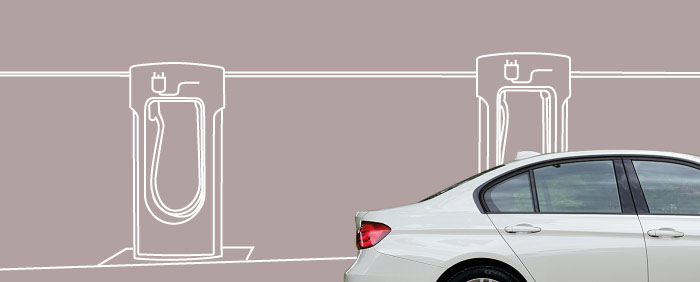Imagine this front page heading in your newspaper tomorrow morning: “Electric car sales reach 25%: All urban fuel stations stop selling petrol/diesel and most urban repair garages go bankrupt”.
We are a way off this being a reality in many countries, but once Electric Vehicle (EV) ownership hits a certain tipping point, the ability to run an Internal Combustion Engine (ICE) car will become impractical in many areas (a Type 1 phase change so an incredibly rapid change). After allowing for pollution control measures, even 25% electric car ownership would mean virtually no-one driving in an urban area would be using an ICE vehicle.
False assumptions
Many people remain uncertain whether or not electric cars will become the majority. However many people are equally wrong in their belief that electric cars will slowly take over from petrol and diesel-powered vehicles with no other visible effects. Given that the average car on the UK roads is 8 years old, it would take about 12-15 years for ICE vehicles to slowly disappear, even if ICEs were banned tomorrow rather than proposed dates of around 2040. That could be the case for the country as a whole but in high population urban and suburban areas the change is likely to arrive much faster than anyone believes likely. Why? Infrastructure.
Changes to charging
Currently, most electric car users charge their vehicles at home and remain within their vehicle’s single-charge range for about 99% of the time. But around half of the total car owners do not have off-street parking so will require some kind of commercial charging system as opposed to private. Rather than current slow charging via hundreds of thousands of stand-alone charging points, it is more likely that high-density rapid charging at a smaller number of ‘fuel’ stations will dominate which makes electricity infrastructure easier to plan.
The final nail
EVs require significantly less maintenance than ICE vehicles. Currently, exhaust replacements and oil changes are the backbones of many local small repair shops. These jobs will vanish and with them the profitability of many of the local workshops. ICE maintenance will become more difficult and the convenience of the relative lack of maintenance of an EV will further push electric vehicle adoption. A combination of collapsing demand and reskilling will probably result in most local repair shops going bankrupt. This, combined with the lack of petrol stations, means it becomes impractical to continue to run an ICE.
The death of fuel stations
This ecosystem is much more vulnerable than many people believe. A lot of small fuel stations already are near profitless – they survive by attracting customers with other co-located services such as shops and repair facilities. Many electric vehicle users will charge at home and never or rarely use public charging systems. However, we go back to the problem of 48% of people in the UK (we’re getting the Global figures) do not have off-street parking so will need commercial charging. Unfortunately, EVs do not naturally fit the fuel station approach (high usage of a small number of quick to use pumps) but need significantly longer dwell times for their slower charging cycles (30 minutes+). As such converting existing petrol pumps in small fuel stations to chargers does not work as the facilities people want surrounding fuelling an ICE (quick local shops) are different to those required by 30 minute + charge times (weekly shop, coffee). Supermarkets with large car parks where people already regularly park for 30+ minutes will happily cope but the fuel station depending on high turn-over of customers cannot survive EV disruption.
Beyond disruption, what will the future look like?
Instead of plugging in your EV, imagine using wireless power transmission to power vehicles parked at a particular spot. WiTricity already can do this with a wireless charging mat in your garage, maybe this can be done in carparks, or even in road surfaces. Perhaps repair shops will turn into ICE: EV conversion hubs – probably not very profitable for large scale businesses to consider, but for small/freelance businesses it’s an interesting prospect.
How could you shape the future of your industry? Let’s chat: hello@18.170.153.187

